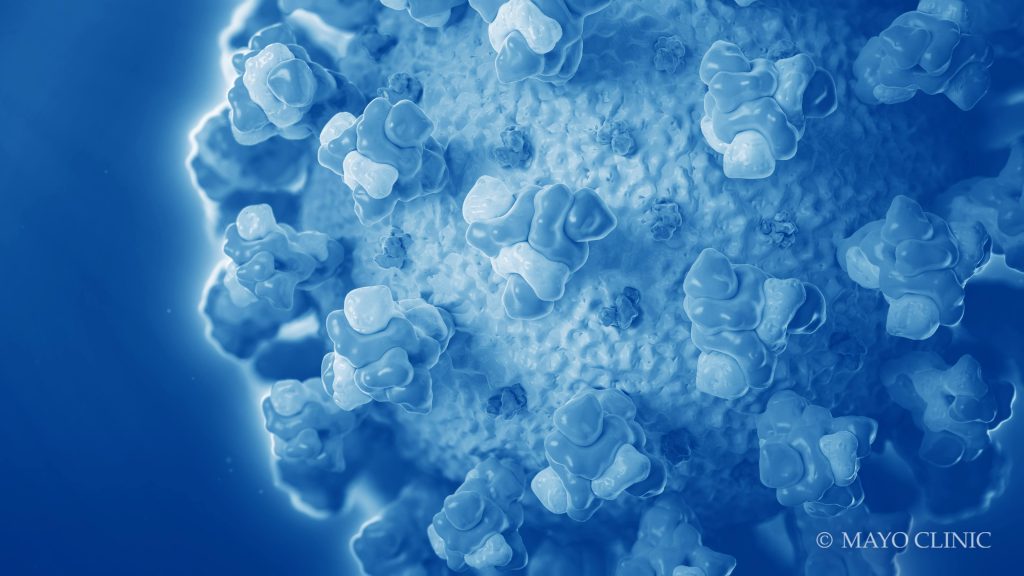-
COVID-19
VIRUS: COVID-19 registry first to track global ICU experience to shed light on trends in care of critically ill patients

MOUNT PROSPECT, Ill — May 12, 2020 — The Society of Critical Care Medicine (SCCM) and Mayo Clinic have partnered to launch the first global COVID-19 registry that tracks ICU and hospital care patterns in near real-time. Created by SCCM’s Discovery, the Critical Care Research Network, the Viral Infection and Respiratory Illness Universal Study (VIRUS) will reveal practice variations and provide a rich database for research into effective treatments and care.
The registry, which is growing daily, features a dashboard of data based on more than 3,400 patients from 110 healthcare sites in eight countries. Updated regularly, the dashboard tracks data on trends such as mechanical ventilation duration, ICU length of stay, ICU discharge details and the type of medical support patients receive, as well as patient demographics: gender, age and race.
"The COVID-19 pandemic has introduced unprecedented challenges to healthcare systems worldwide, but we live in a more connected world and we must work together and learn from each other’s experiences to help reduce the severity of the impact," said Rahul Kashyap, M.B.B.S., MBA, Mayo Clinic researcher and principal investigator of the VIRUS COVID-19 Registry. "This dissemination of aggregated knowledge shared in a single database in a timely manner will be essential for comparative effectiveness studies. It will be a game changer."
The open-access, observational study and registry includes de-identified clinical data of adults and children admitted to a hospital for COVID-19 care, using the REDCap data capture system, a highly secure Mayo Clinic database. Sites will have access to their own data at all times and can submit ancillary research proposals to the SCCM Discovery Steering Committee to use the VIRUS dataset for research.
The registry arose from the recognition that the global health community was unable to gather consensus data in a timely manner during the 2014 Ebola outbreak.
"As the COVID-19 pandemic numbers grew, it quickly became apparent that anecdotal and opinion-based medicine was proliferating along with the virus," said Allan J. Walkey, M.D., M.S., associate professor of medicine, Boston University, and co-principal investigator for the VIRUS study. “We saw an urgent need for reliable data that could be used to guide decision making for this surge of critically ill patients.”
The registry illustrates how rapidly vital data can be pulled together in the spirit of collaboration. Four days after the World Health Organization declared COVID-19 a pandemic, Vishakha Kumar, M.D., MBA, co-principal investigator and acting director of research for SCCM’s Discovery, and Dr. Kashyap discussed the need for a registry. Four days later, on a Sunday, Dr. Walkey tweeted, "Is anybody doing a COVID registry?" and by the end of the day the group had a plan to move forward.
"It’s remarkable how quickly the global medical community came together in an effort to share data and understand this novel virus in ways that will improve patient care," said Greg Martin, M.D., M.S., FCCM, SCCM president-elect and executive associate division director, Pulmonary, Allergy, Critical Care and Sleep Medicine, Emory University School of Medicine. "Clinicians on the front lines of this pandemic are providing the data in their spare time. The information they are collecting will not only help in the care of current COVID-19 patients but it also will guide how we care for patients in future outbreaks. The more centers around the world that participate, the better the data will be for us all."
The registry opened March 31, and six weeks later more than 3,400 cases had been entered. Each site will collect patient characteristics, treatment strategies and outcomes, which will be de-identified, meaning names and other identifying information will not be included in the database.
All centers that are treating COVID-19 patients are encouraged to participate.
Funded by the Gordon and Betty Moore Foundation, the year-long project will provide data for future studies on COVID-19. The outcomes from VIRUS will be particularly helpful to guide management of patients during a possible second wave of the pandemic. The database also establishes an infrastructure for rapid data collection, analysis and dissemination that would allow a nimble response to future outbreaks. The Gordon and Betty Moore Foundation fosters path-breaking scientific discovery, environmental conservation, patient care improvements and preservation of the special character of the Bay Area.
In 2016, the SCCM formed Discovery to provide a central resource to link critical care researchers to scale up research in critical care illness and injury, providing centralized networking and tangible resources, such as data storage and management, statistical support and other needs.
For more information visit the Discovery VIRUS COVID-19 Registry.
###
About Mayo Clinic
Mayo Clinic is a nonprofit organization committed to innovation in clinical practice, education and research, and providing compassion, expertise and answers to everyone who needs healing. Visit the Mayo Clinic News Network for additional Mayo Clinic news and An Inside Look at Mayo Clinic for more information about Mayo.
The Society of Critical Care Medicine
The Society of Critical Care Medicine (SCCM) is the largest nonprofit medical organization dedicated to promoting excellence and consistency in the practice of critical care. With members in more than 100 countries, SCCM is the only organization that represents all professional components of the critical care team. The Society offers a variety of activities that ensure excellence in patient care, education, research, and advocacy. SCCM’s mission is to secure the highest quality of care for all critically ill and injured patients. Visit sccm.org for more information. Follow @SCCM or visit us on Facebook.
Media Contacts:
- Colette Gallagher, Mayo Clinic Public Affairs, newsbureau@mayo.edu
- Lauren Martin, SCCM, 312-558-1770, Lmartin@pcipr.com







